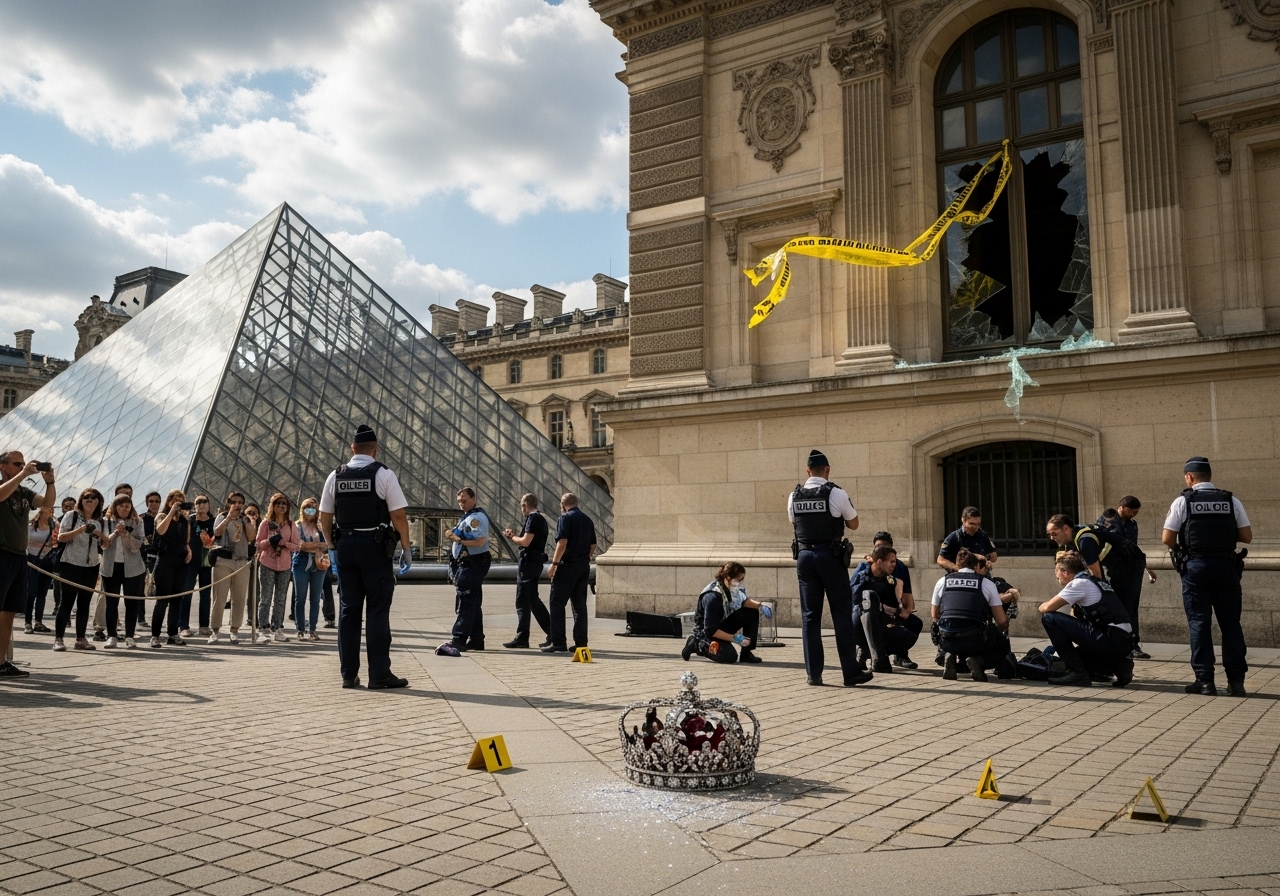What happened in Paris this week should have every security expert and military veteran raising an eyebrow. In a shocking and well-coordinated attack, three masked thieves broke into the Louvre Museum in broad daylight and made off with priceless jewels once owned by Napoleon Bonaparte. This wasn’t some small-time smash-and-grab operation. It was a professional job, pulled off in just ten minutes, with power tools and a mechanical lift.
The Louvre is supposed to be one of the most secure museums in the world. It holds the “Mona Lisa,” the “Venus de Milo,” and now, apparently, a big security problem. These thieves used construction tools—an angle grinder and a lift—to reach a second-floor window. They weren’t in a hurry. They were prepared. Reports say they wore construction uniforms and hoods, blending in with ongoing repair work. This wasn’t luck. It was planning.
They got in, shattered display cases in the Apollon Gallery, and stole nine pieces of historic jewelry, including a brooch, a necklace, and a tiara. These weren’t just fancy baubles. These were crown jewels—symbols of French power and history. One of the pieces, a crown believed to belong to Empress Eugenie, Napoleon’s wife, was damaged and dropped near the scene. That’s how close the thieves were to getting away clean.
Now, let’s talk about what this means. As a veteran, I’ve seen how important it is to protect not just our physical borders, but our cultural and historical heritage. These items may not be ours, but they belong to the history of Western civilization. Losing them to street-level thugs or international crime syndicates is a disgrace.
The French government admitted these items have “inestimable heritage and historical value.” That’s not just talk. You can’t put a dollar sign on what these artifacts mean to a nation—or to the world. But the real concern isn’t just that these things were stolen. It’s how.
This heist highlights a dangerous truth: even the most protected places are vulnerable when leadership gets lazy, and security is treated like a formality. According to reports, the Louvre recently dealt with a staff walkout. Workers said the museum was too crowded and understaffed. Well, they weren’t wrong. Criminals saw weakness and exploited it.
That’s how things go when politics get in the way of common sense. A conservative politician in France called this robbery a “humiliation” and said the country’s leadership is in decay. He’s not wrong. When you let your guard down—whether it’s at a museum, a military base, or a border crossing—you invite trouble.
Back in the States, we know how important it is to stay ready. We don’t wait for the enemy to knock—we meet them at the gate. France needs to relearn that lesson, and fast. Letting national treasures walk out the door in ten minutes without a single shot fired or a guard in sight is not just embarrassing—it’s a failure of duty.
Now there’s another problem. These items are so well-known, the thieves might melt them down for gold or sell the diamonds individually. If that happens, those pieces of history are gone forever. You can’t replace them. You can’t rebuild them. You can’t undo that kind of damage.
As veterans, we understand the value of history. We’ve fought to protect it. We’ve lost brothers in arms defending the legacy of our way of life. Watching a crown that once belonged to an emperor get snatched like a handbag is a wake-up call.
Security is not a luxury. It’s a necessity. Whether it’s guarding a forward operating base or a museum full of priceless artifacts, the mission is the same: protect what matters. And right now, the Louvre just failed that mission.





